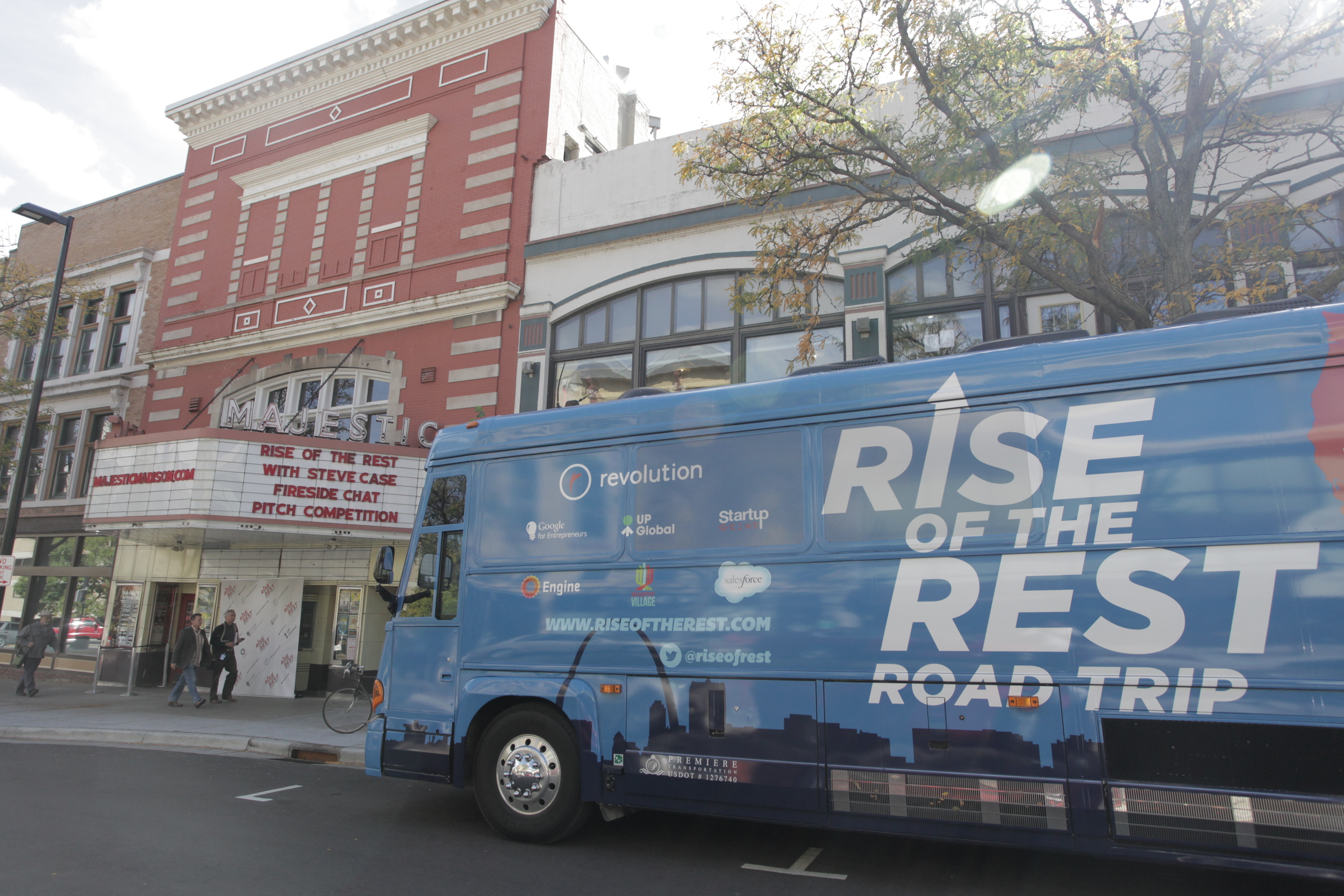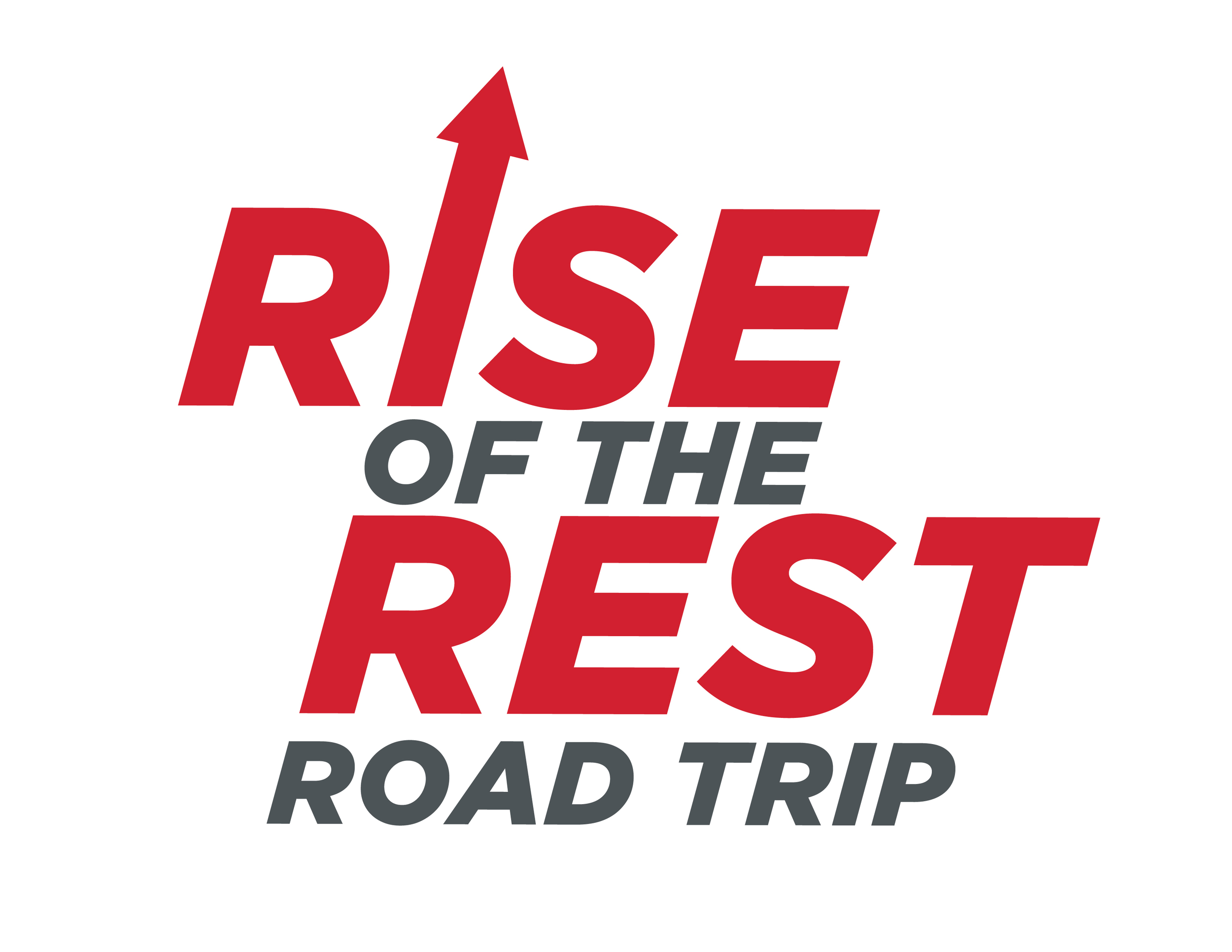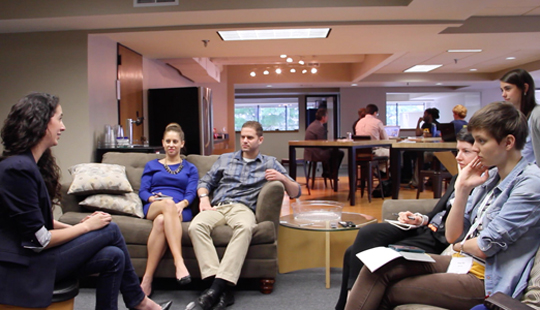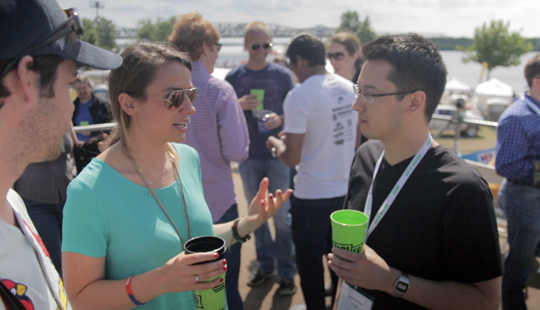As you likely know by now, this summer is key in the fight for net neutrality and an open Internet. It is crucial for stakeholders to take this time to file comments at the Federal Communications Commission explaining why an open Internet is essential to their life and businesses. Today, with our help, four startups in the education space -- who work directly with students to help them acquire the necessary skills to compete in the very global economy -- did just that.
The comments, filed by Codecademy, CodeCombat, General Assembly and OpenCurriculum, all make the central point that harm to net neutrality is harm to startups. In this case specifically, harm to education startups is harm to the pursuit of knowledge and America’s ability to compete in a global technological marketplace. And all four believe that harm can be mitigated by reclassifying the Internet as a utility under Title II of the Telecommunications Act.
We’ll be working with more startups to file comments as the summer continues. We want to make sure that startups in every industry have a voice in this debate. If you are interested in filing comment for your business, and would like our help, email us at comms@engine.is for more information. We hope you’ll join the fight and help us preserve an Internet free and open for innovation.
The existing comments will be posted to the FCC’s comment intake page and are available below for you to read at length:
Overall, these education startups reflect a wider community belief that reclassification is the best (and only) way to achieve the necessary end goal of making sure the Internet does not devolve into a mess of paid prioritization -- or fast and slow lanes. Staying this result is critically important in the field of education, where margins are tight, business is seen as a service, and the outcomes may provide the best fix yet for our economy on the rebound.
From CodeCombat comments:
When CodeCombat first started, resources were scarce, and if we had to negotiate with and pay funds to ISPs, we would have been unable to do so. At that time, we also would not have been able to use the FCC’s standard of “commercial reasonableness” or even a public advocate provided by the FCC to protect our interests. We still may not be able to do so.
...
Almost a million people have learned to code using CodeCombat, including 343,000 students during Code.org’s Hour of Code, a campaign that both President Obama and Republicans encouraged and embraced.We’ve also helped thousands of more experienced programmers hone their skills with more advanced levels. In addition, we’ve translated our game into 40 languages so that students around the world can learn to program as well.
...
We firmly oppose the FCC proposal. We urge the FCC to reclassify ISPs as common carriers under title II of the Communications Act of 1934 to prevent technical discrimination, paid prioritization, interconnection disputes, and the host of other harmful issues which would arise as a result of the adoption of the proposal.
From General Assembly comments:
With national attention on the rising cost of higher education and the crippling debt for recent graduates, General Assembly offers an important outlet for students looking to receive a high return on investment from their education. Over 100,000 students have benefitted from our services, including our 10 - 12 week long immersive programs and our three-month apprenticeship program that provides students with a paid opportunity to further hone their newly-acquired skills on the job.
...
Clear rules are important in promoting innovative enterprise. The factors of the commercial reasonableness test are too vague to provide certainty. These standards include “harm to consumers” or “to competition” and evaluation of a totality-of-the- circumstances. Such a standard will only lead to expensive and time-consuming litigation that start-ups cannot afford and which will therefore curb entrepreneurial activity to the benefit incumbent players and their legal teams.
General Assembly believes we need strong network neutrality rules that prohibit blocking, discrimination, and access fees. These require reclassification under Title II of the Communications Act. The Internet works well today; allowing ISPs to price discriminate will harm businesses like ours, the general public, and the economic well-being of our country.
From OpenCurriculum comments:
We want to spend our time and resources transforming education, changing the lives of teachers and students, with the awareness that such education will have lasting impact on today’s young people throughout their entire lives and benefit society in general. Asking us to negotiate for “commercially reasonable” deals in light of our larger competitors being willing to pay a premium to keep us out of the market is rigging the market so we (and other entrants) lose. “Comforting” us with the right to hire lawyers and expert witnesses, or wait years for an FCC Ombudsman to win or lose a case whose legal standards are also stacked against us, provides no comfort.
….
Even if we find ways to pay for premium tiers with different cable and phone companies, this is going to significantly eat into our capital affecting the way we grow and our ability to allow more teachers in the United States and around the world to get access to better quality teaching materials for the future generations.
...
The FCC should instead reclassify access to the Internet as a common carrier service and forbid unreasonable technical discrimination, define pay-for-play deals as inherently unjust and unreasonable, define access fees as inherently unreasonable charges, and apply these rules to both mobile and fixed platforms.
From Codecademy comments:
Codecademy is an innovative solution for schools and students to save money. Our company also has an important impact on job creation. We're building the basic steps of competency to help people start their own companies, websites, apps, and products and get entry level jobs right now. The next big thing, or an innovative solution to a social problem, could be developed by someone who learned how to code using Codecademy.
But none of that may happen if the FCC adopts its fast-lanes proposal and abandons an open Internet.





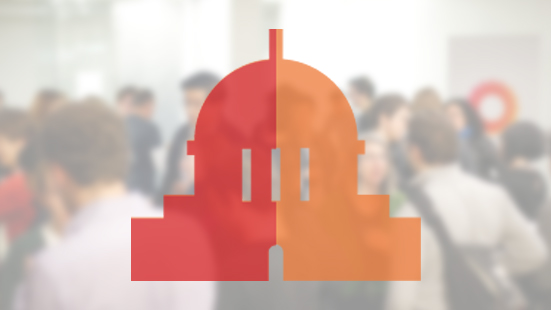


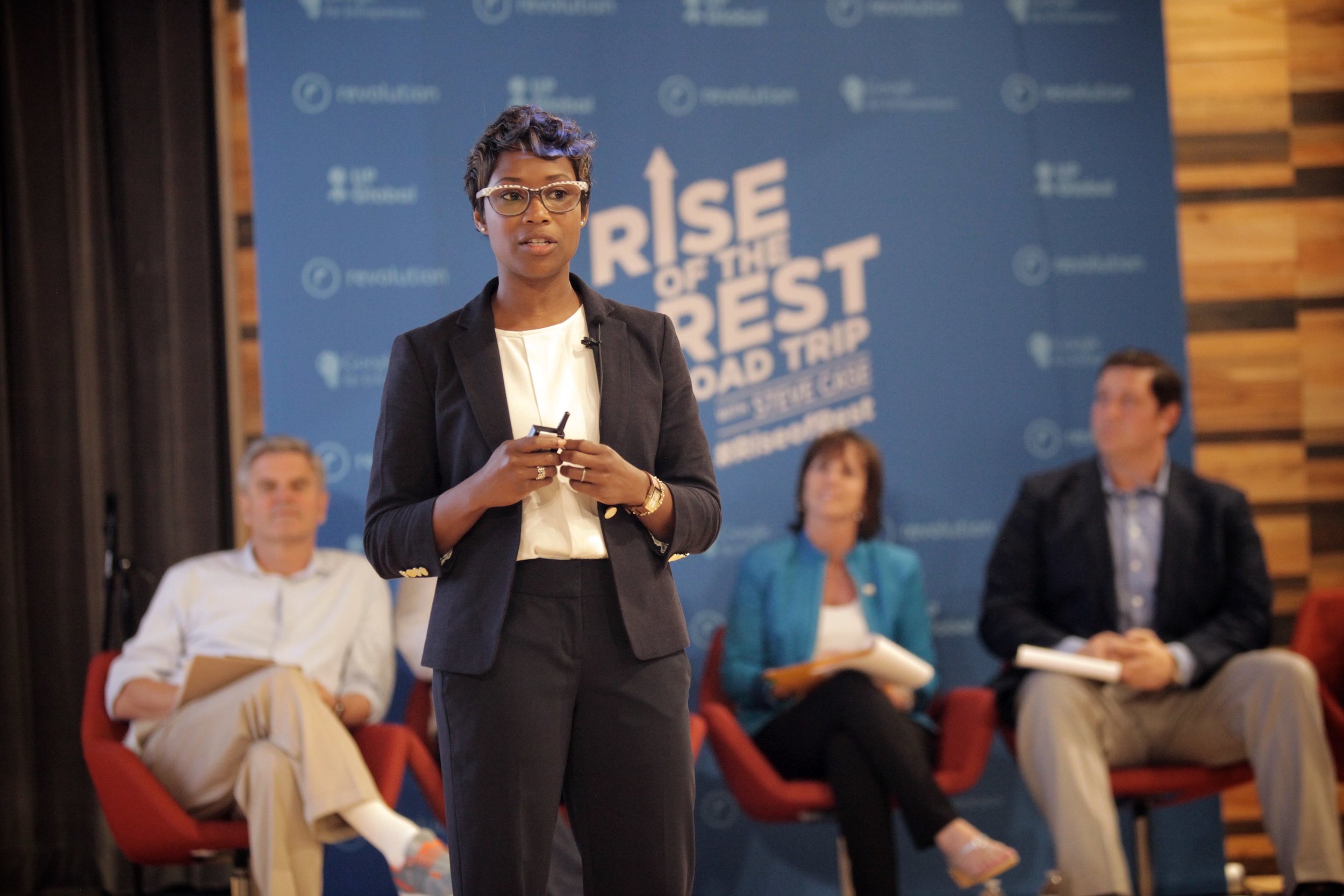
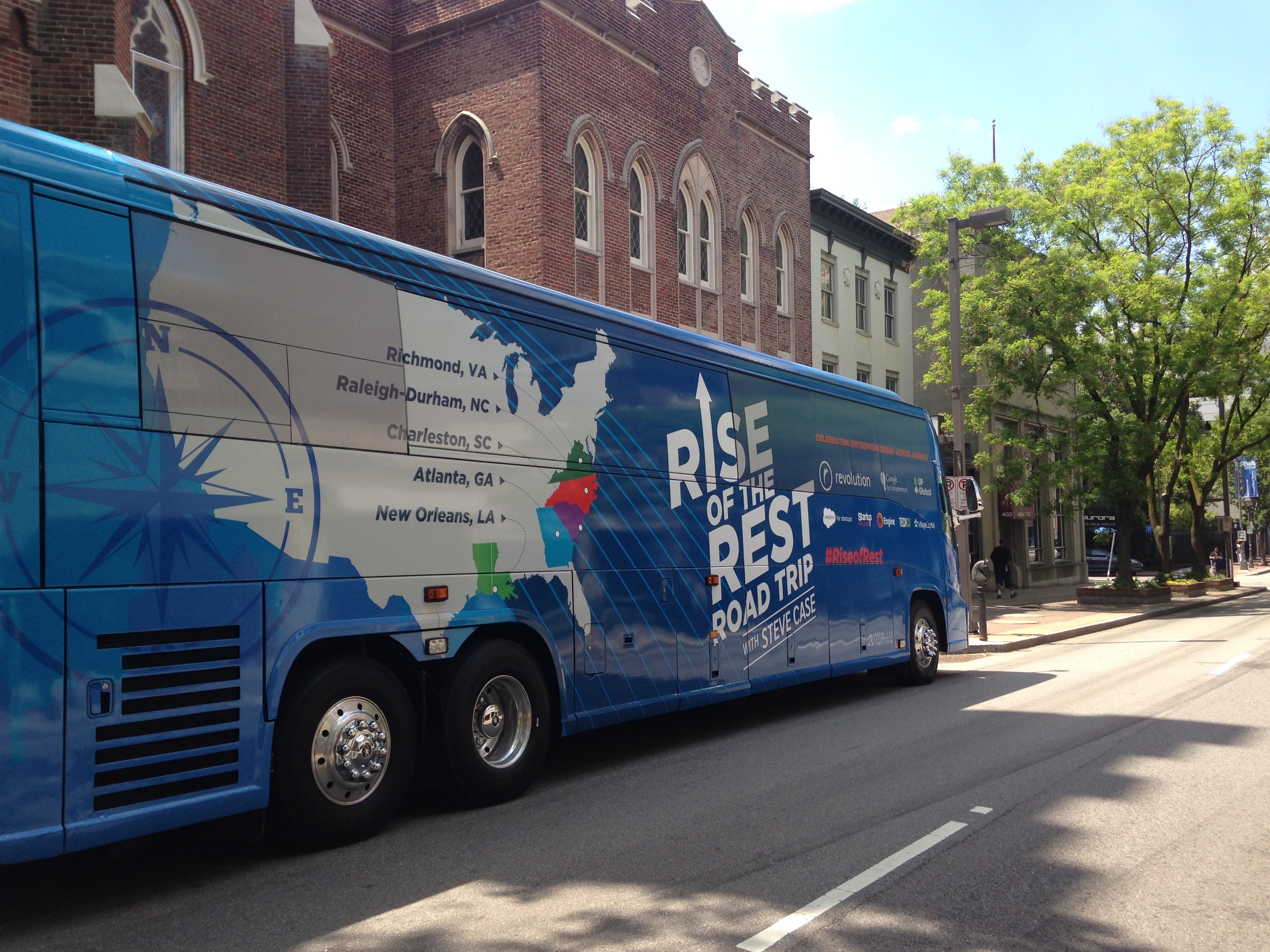
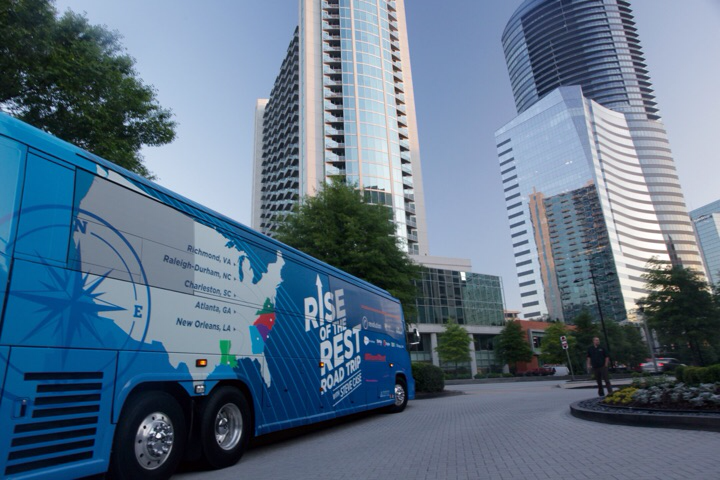
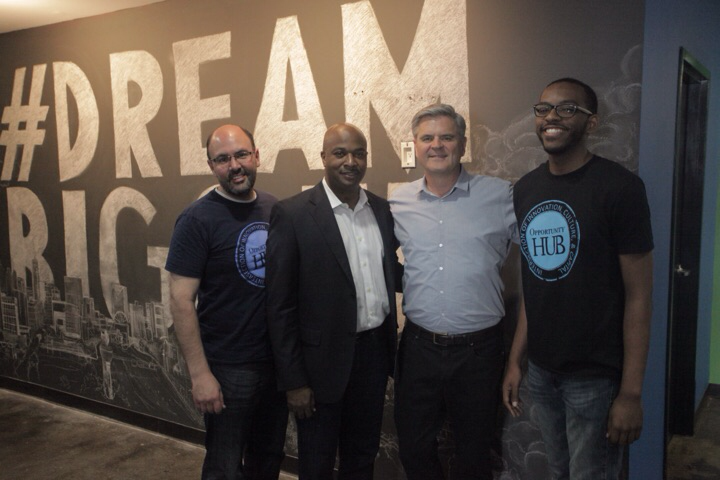
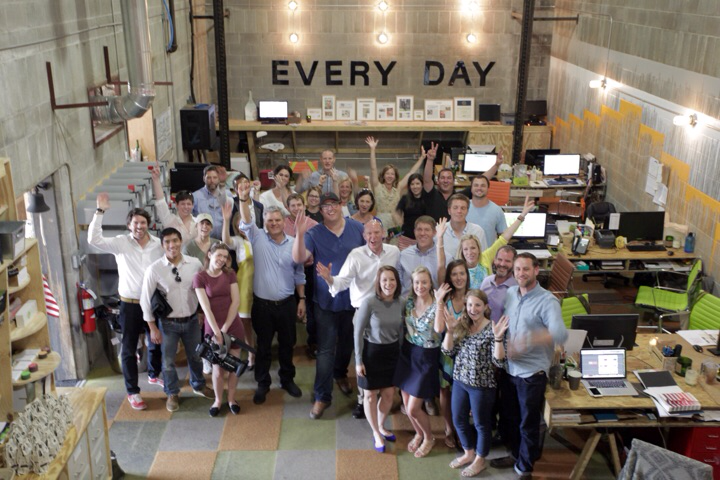
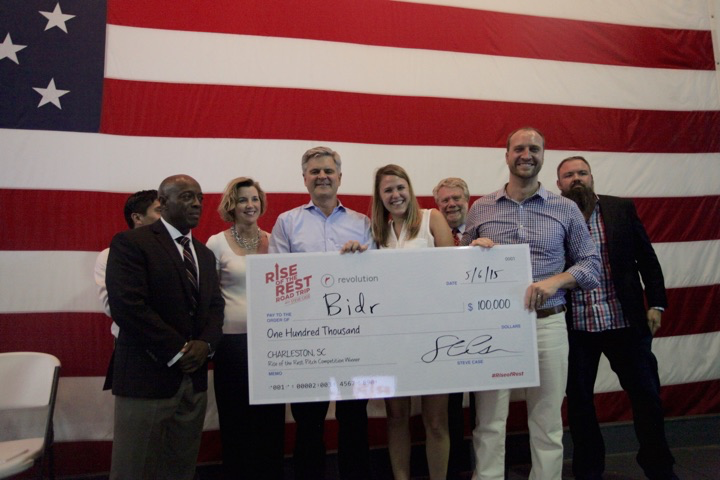
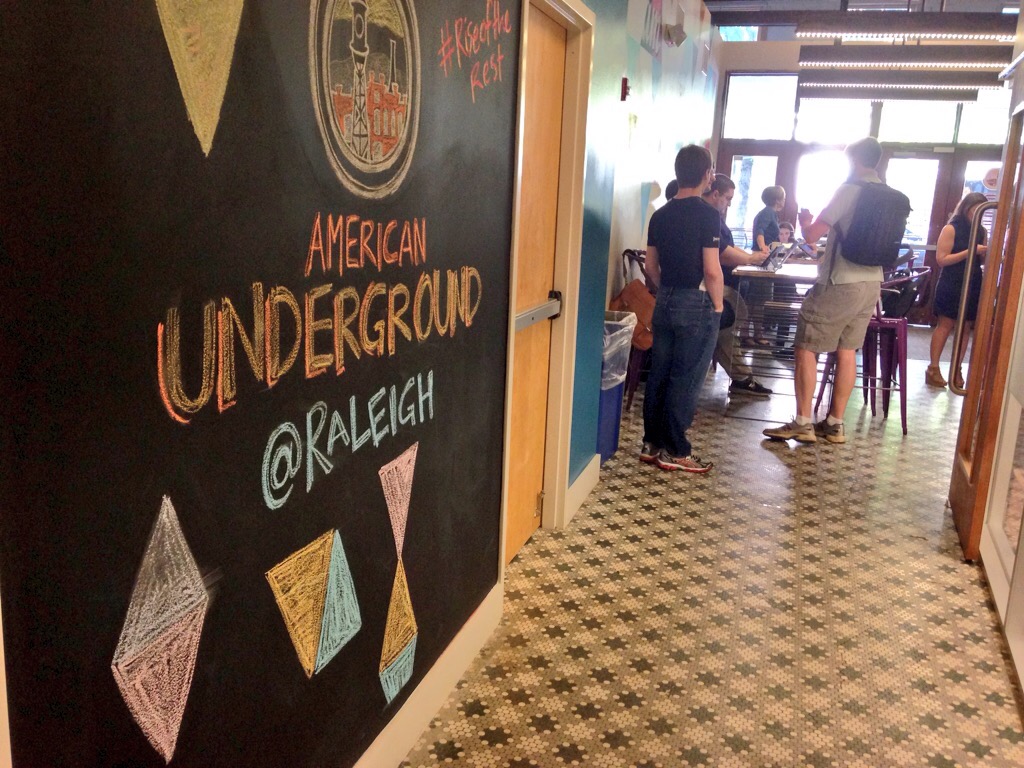
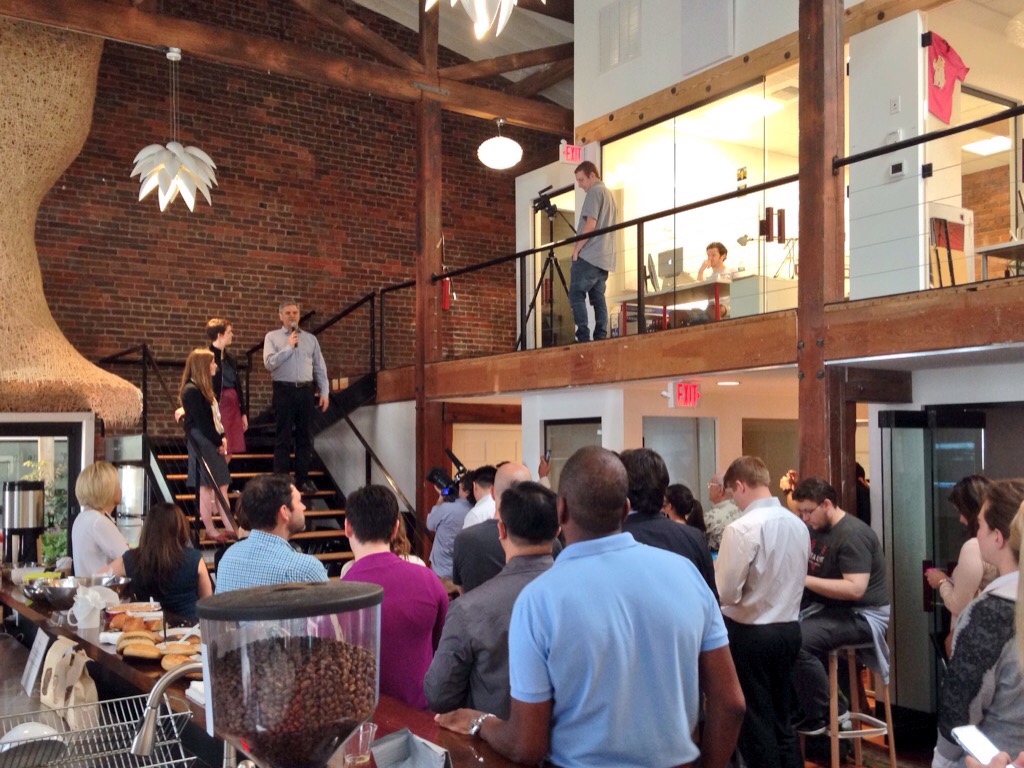
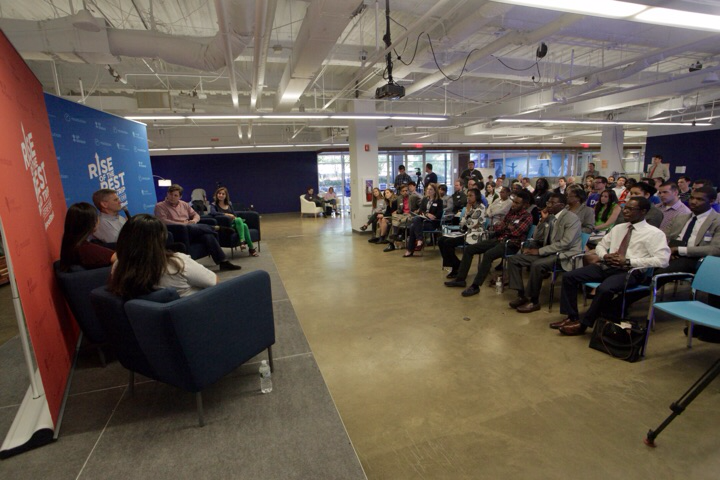





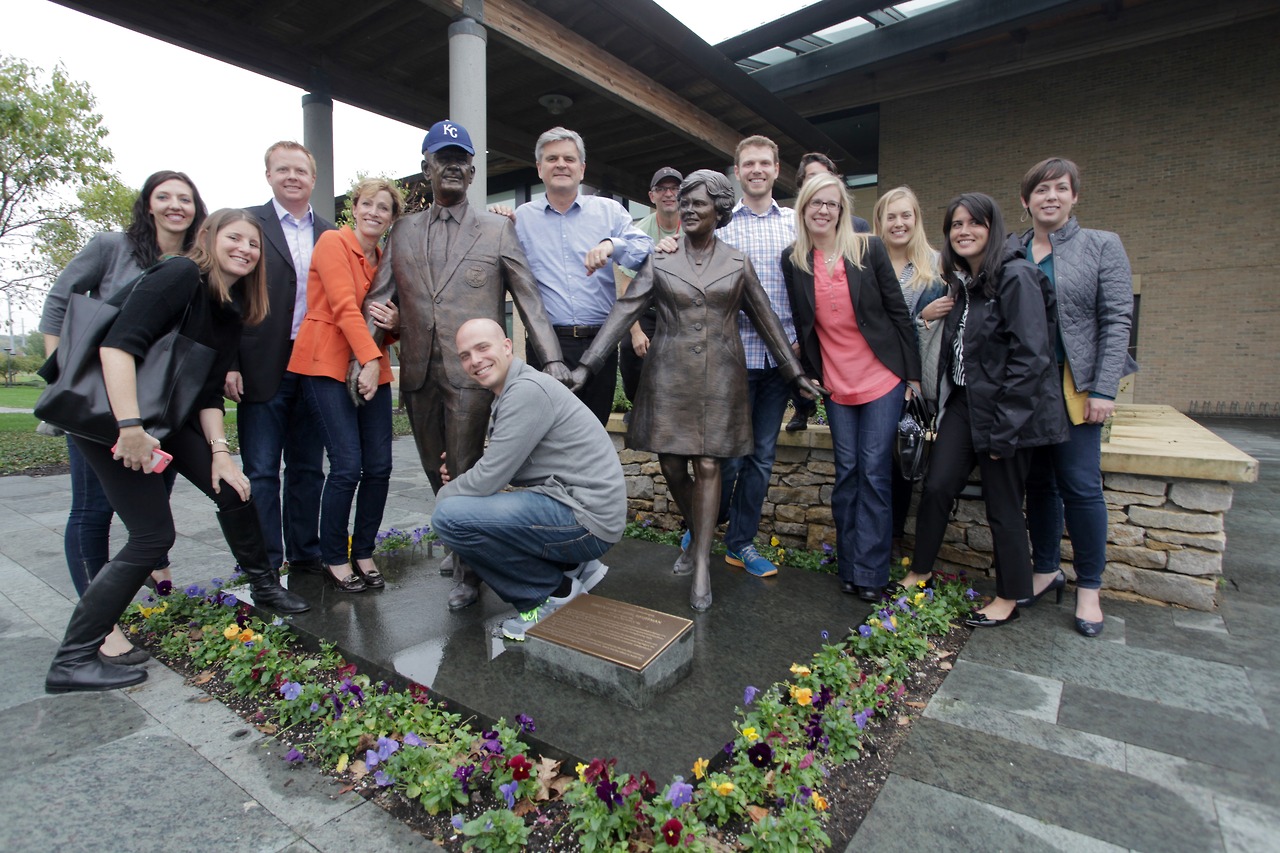

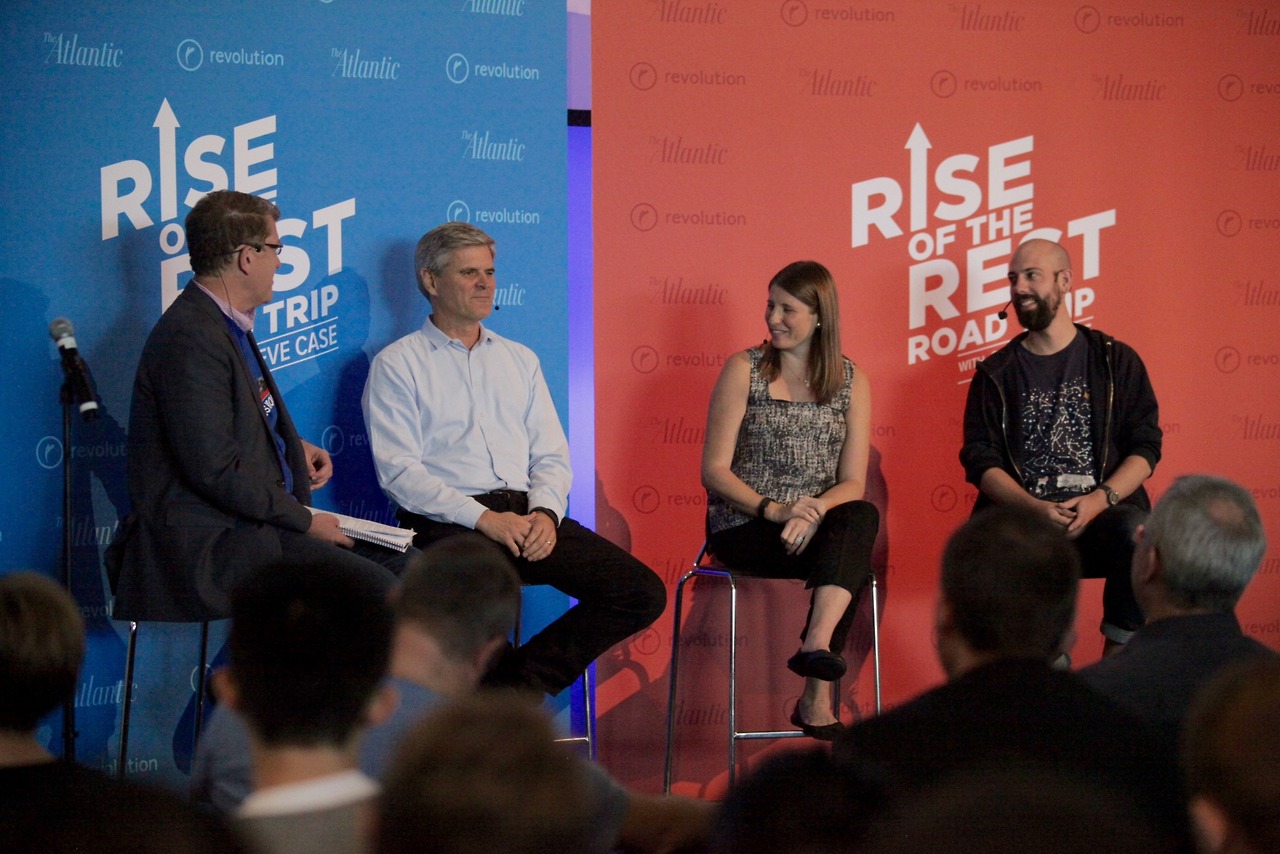

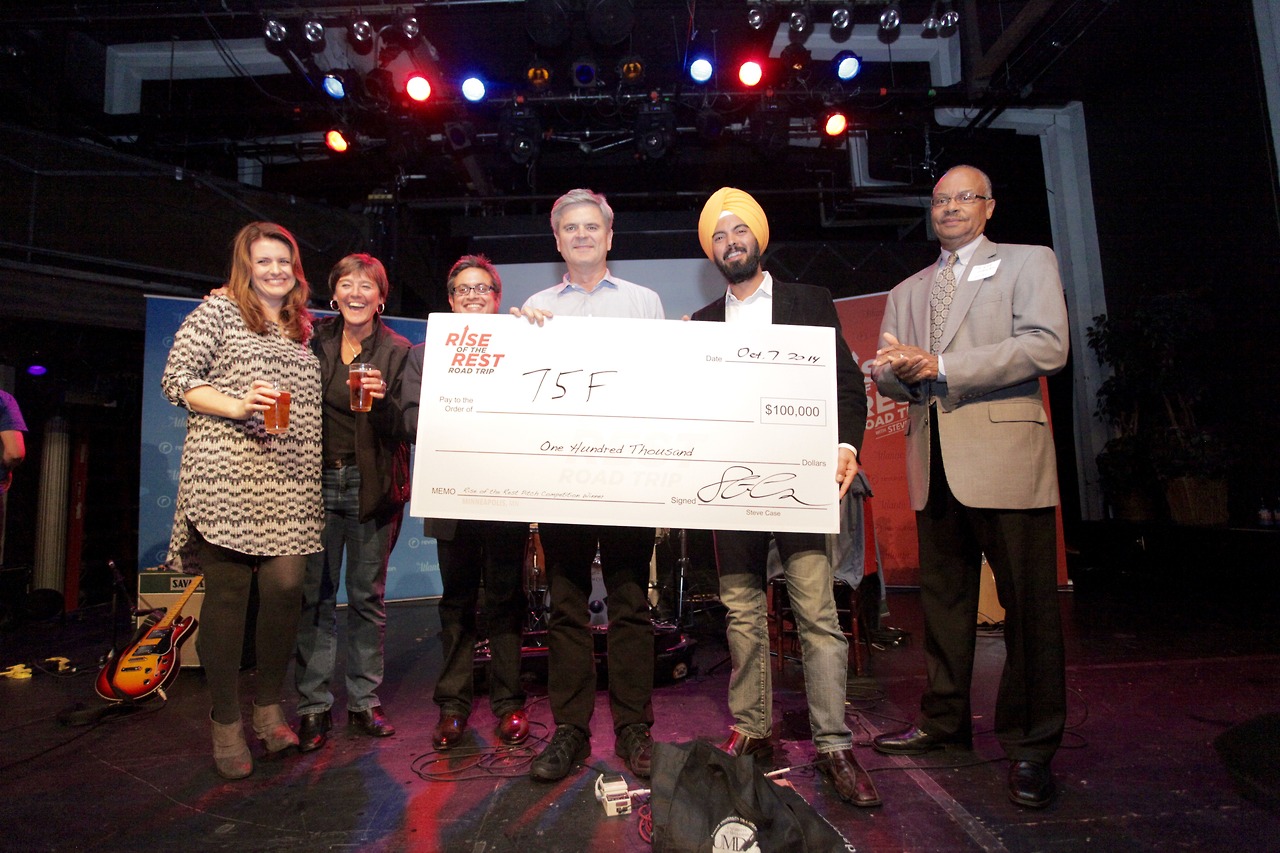 What became obvious to us during our visit to this accomplished city is that there’s still immense potential for growth in the concentration and network of startups here. There’s room for the startup community to encourage more collaboration, garner more support and become more recognized in this city where the Fortune 500 companies remain the dominant economic influence. Steve Case and the Rise of the Rest team shared ideas about how to enliven this startup ecosystem, including encouraging big businesses to become customers of smaller ones, creating opportunities for mentorship, and sponsoring more initiatives like the Minnesota Cup, an annual competition that rewards new business ideas. Considering how things are going, we look forward to seeing what the entrepreneurs of the Twin Cities do next.
What became obvious to us during our visit to this accomplished city is that there’s still immense potential for growth in the concentration and network of startups here. There’s room for the startup community to encourage more collaboration, garner more support and become more recognized in this city where the Fortune 500 companies remain the dominant economic influence. Steve Case and the Rise of the Rest team shared ideas about how to enliven this startup ecosystem, including encouraging big businesses to become customers of smaller ones, creating opportunities for mentorship, and sponsoring more initiatives like the Minnesota Cup, an annual competition that rewards new business ideas. Considering how things are going, we look forward to seeing what the entrepreneurs of the Twin Cities do next.